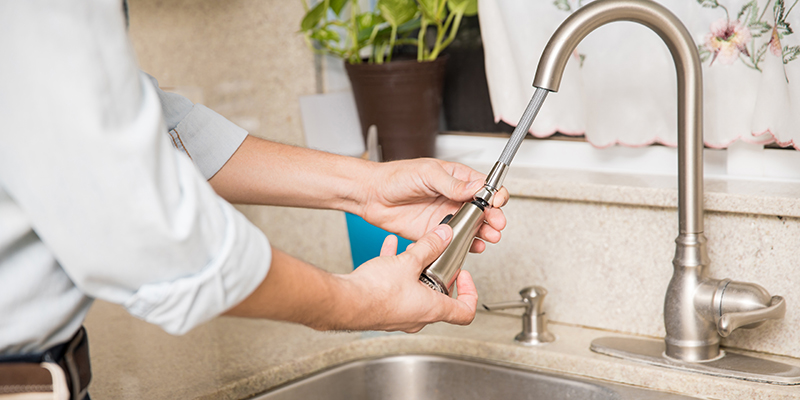The weather is finally starting to warm up and that means it’s time to start thinking about your spring plumbing checklist! Spring is one of the most important times of year to perform regular maintenance on your plumbing. A small problem that goes unchecked can turn into a big emergency later on. In this blog post, we will discuss 10 critical spring plumbing tips that will help you avoid emergencies and keep your plumbing running smoothly.
The Importance of Spring Plumbing Maintenance
As the weather gets warmer, people start to spend more time outside and less time indoors. This means that your plumbing gets a break from being used as often as it is during the colder months. However, just because your plumbing isn’t being used as much doesn’t mean that you can forget about it completely! Spring is actually one of the most important times of year to perform regular maintenance on your plumbing.
The Importance of Spring Plumbing Maintenance
One of the reasons spring is such an important time for plumbing maintenance is because it helps prevent problems that could occur later in the year when your system is under more stress. For example, if you neglect to clean out your gutters in the spring, they could become clogged with leaves and debris over the course of the year. This could lead to water damage to your home or even flooding in extreme cases. By taking care of these problem areas in the spring, you can avoid much more serious issues later on.
Another reason why spring is a critical time for plumbing maintenance is because it gives you a chance to identify and fix small problems before they turn into big ones. For example, if you notice a small leak under your kitchen sink, fixing it now will be much less expensive and disruptive than if you wait until the leak becomes a full-blown flood.
Spring Plumbing Tips
Check Your Sump Pump
If you have a sump pump in your home, it’s important to check it regularly to make sure it’s in good working order. A sump pump is designed to remove water that has accumulated in your basement or crawl space, and it can be a lifesaver during periods of heavy rain. However, if the pump isn’t working properly, it could cause flooding in your home.
To test your sump pump, fill the pit with water and then turn on the pump. The water should start flowing out of the discharge pipe within a few seconds. If the water doesn’t start flowing or if the flow is very weak, there may be something wrong with your pump and you should call a plumber.
Check Your Basement Pipes
If you have any pipes in your basement, it’s important to check them regularly for leaks. Basement pipes are particularly susceptible to freezing and bursting during the winter, so it’s important to make sure they’re in good condition before the cold weather sets in.
Look for any signs of water damage on the walls or floor around the pipes. If you see any stains or damp spots, there may be a leak. You should also feel the pipes themselves to see if they’re warm to the touch. If they are, this could be an indication that there’s a problem.
If you think there may be a problem with your basement pipes, it’s important to call a plumber right away. Ignoring the problem could lead to serious damage to your home.
Check Your Faucets
One of the most common plumbing problems is a leaking faucet. A leaky faucet can waste a lot of water and increase your water bill, so it’s important to fix them as soon as you notice them.
Check Your Water Heater
Your water heater is one of the most important components of your plumbing system, and it’s important to keep it in good working order. One of the best ways to do this is to flush the tank regularly.
Flushing the tank helps remove sediment that can build up over time and cause problems with your water heater. Sediment can cause the burner to work less efficiently, leading to higher energy bills. It can also lead to corrosion, which can shorten the lifespan of your water heater.
To flush your water heater, simply turn off the power or gas supply and then open the drain valve at the bottom of the tank. Let all of the water drain out until you see clear water coming out of the valve. Once all of the sediment has been flushed out, close the valve and turn on the power or gas.
It’s a good idea to flush your water heater once a year, but you may need to do it more often if you have hard water. Spring is the perfect time to flush your water heater and get it ready for the warmer months ahead.
Check Out Your Appliances
If you have any appliances that use water, such as a washing machine or dishwasher, it’s important to check them regularly for leaks. A small leak can quickly turn into a big problem, so it’s best to catch them early.
One way to check for leaks is to look for any water stains around the appliance. Another way is to listen for any dripping or hissing sounds coming from the appliance. If you hear anything suspicious, it’s best to call a plumber right away.
In addition to checking for leaks, it’s also important to make sure your appliances are in good working condition. This includes things like making sure the hoses are securely connected and there are no cracks or holes in them.
Check Your Water Pressure
If you’ve ever had a shower that was too hot or too cold, then you know how important it is to have good water pressure. Water pressure that’s too high can cause problems with your plumbing, and it can be dangerous.
On the other hand, water pressure that’s too low can be just as big of a problem. Low water pressure can make it difficult to take a shower or do the dishes. It can also lead to leaks because the pipes are not able to handle the amount of water flowing through them.
Spring Cleaning
In addition to spring cleaning around your home, consider some spring cleaning tasks associated with your plumbing. This is a good time to clear any drains that are clogged and to check for any leaks.
It’s also a good idea to have your septic tank pumped if you have one. Pumping the tank helps remove any solids that have accumulated over the winter and prevents them from clogging the leach field.
If you don’t have a septic tank, now is a good time to clean out your gutters. Clogged gutters can cause water to back up into your home, which can lead to leaks and other problems.
Inspect Your Toilet Tank
You may not think about your toilet tank very often, but it’s actually one of the most important parts of your plumbing. The toilet tank is responsible for holding water until you’re ready to use it.
Over time, the tank can develop cracks and leaks. These leaks can be small at first, but they can quickly become big problems. To prevent leaks, it’s a good idea to have your toilet tank checked by a plumber every few years.
Food coloring is another way to check for leaks. Simply add a few drops of food coloring to the toilet tank and see if it appears in the toilet bowl within 15 minutes. If it does, you have a leak.
Make Sure Toilets Flush Properly
Another important toilet-related task is to make sure they flush properly. Toilets that don’t flush properly can waste a lot of water and cause sewage to back up into your home.
There are a few things you can do to make sure your toilets are flushing properly. First, check the float ball and see if it’s set at the correct level. Second, check the flapper and see if it’s sealing properly. Finally, check the fill valve and make sure it’s not leaking.
Check Outdoor Faucets
Outdoor faucets and outdoor pipes are another part of your plumbing that you may not think about very often. However, they’re actually one of the most common places for leaks to occur.
One way to check for leaks is to turn on the water at the outdoor faucet and see if there are any drips. Another way is to look at the ground around the faucet. If you see any wet spots, it’s a good indication that there’s a leak.
If you do have a leak, it’s important to have it fixed as soon as possible. Otherwise, it could lead to serious problems like water damage or mold growth in your home.
Keep Your Plumbing System in Tip-Top Shape
By following these spring plumbing tips, you can help keep your plumbing in tip-top shape. This will prevent leaks, save water, and even save you money on your water bill. So don’t wait – get started today!
Plumbing Services in Winston-Salem, NC
If you’re in need of a Winston-Salem, NC plumber, look no further than Bodenheimer Plumbing. We provide a wide range of plumbing services, including tankless water heater installation, drain cleaning, fixing hidden leaks, and more. Contact us today for all your residential plumbing needs.

